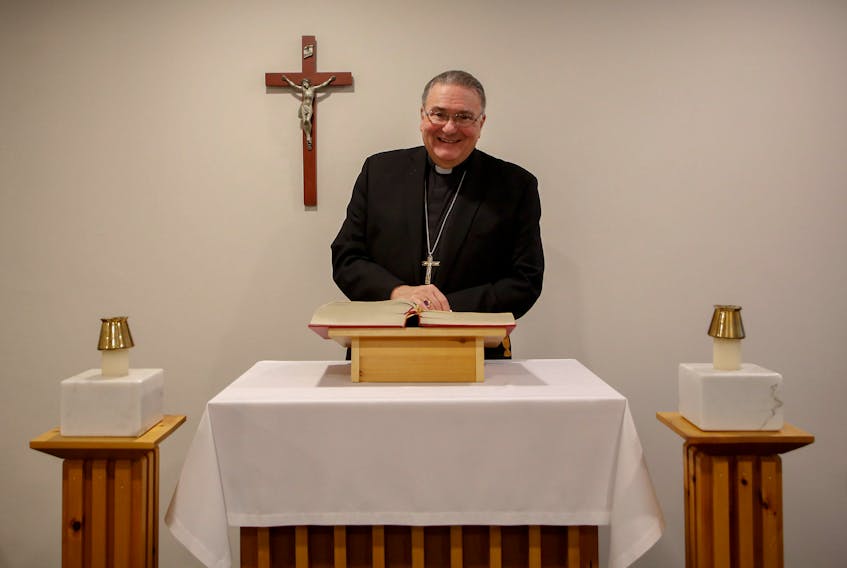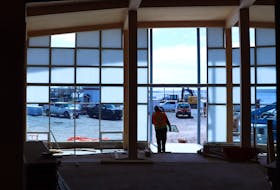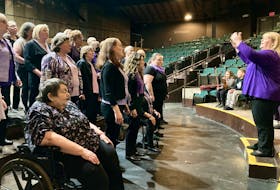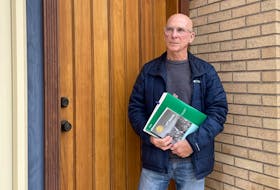Archbishop Anthony Mancini ought to be making last-minute preparations for a trip back to his Italian birthplace to celebrate his 75th birthday Friday and retirement from active service with the Halifax-Yarmouth archdiocese.
But COVID-19 has a way of casting asunder even the best-laid plans of mice and clergymen.
“That’s like the magic number in Canon law,” Mancini said of a 75th birthday coinciding with retirement.
“Prior to COVID, once retirement had kicked in I had hoped to go off and spend a month in Florida with my family and then I was going to Europe for a little visit,” Mancini said. “All that is down the drain now.”
The European trip would have taken Mancini to Rome and back to his home village of Mignano in the province of Caserta to visit with the few cousins who remain in Italy.
“Kind of a last round, that was the plan,” Mancini said.
Mignano is not far from Monte Cassino, the site of four decisive Allied assaults against Italy in the latter stages of the Second World War.
“That kind of explains why my parents left,” Mancini said. “There wasn’t much left standing after the war and that’s how we ended up coming to Canada.”
Mancini celebrated his third birthday on the ship from Italy that arrived at Pier 21 in Halifax on Dec. 1, 1948.
The change that carried the family to Halifax and then on to Montreal, where Mancini grew up, has been a constant thread in Mancini’s ministry since he was installed as Catholic archbishop of Halifax on his 62nd birthday in 2007.
“It’s been a time of great turmoil and change for the church all over the place but it’s also had its effects locally,” Mancini said. “From a structural, institutional perspective, one of the big changes was the merging of Yarmouth and the archdiocese of Halifax.”
That merger took place in December 2011.
“The two dioceses that existed prior to my arrival, part of my job was to bring two dioceses together and that occurred. We did merge, that was one big item.”
The other big item, Mancini said, was restructuring of all the parishes within the merged archdiocese.

“That’s been a major thing,” Mancini said of the parish restructuring that came into effect on Jan. 1. “We had 65 parishes with a whole bunch of missions attached. We’ve merged a number of them together and now we have 20 parishes with multiple worship sites. We’ve merged them into smaller institutional groupings and that took a lot of work and bringing people together, talking, consulting. Of course when you do that kind of work, it’s not something that people receive 100 per cent. There’s been some pushback, some disappointment, but all things considered, we’ve moved ahead with that and that’s what my successor (Archbishop Brian Dunn) is going to be archbishop of, Halifax-Yarmouth.”
Another change, common to most mainstream religions, is the dropoff in practising congregants, coupled with a decline in the number of ordained priests.
“It is true that religious interests and religious faith appears to be on a downward trend,” Mancini said. “All the statistics indicate that in North America, the largest religious group is the people who claim to have no religious convictions.”
"The point is not how do we maintain what we had, we can’t. So, what does the mission become? That’s been the overwhelming concern I’ve had over the years is to try to define what this mission is in the world that we are in right now and not to try to maintain or self-preserve something that was maybe adequate 50 years, 100 years, 200 years ago but no longer is.”
Archbishop Anthony Mancini
The archbishop said there is an element of perception that has to be considered.
“It’s a problem in the sense that we are always comparing something to the past,” Mancini said. “There are fewer people compared to the past, fewer priests compared to the past, fewer young people compared to the past. … The reality is that the past no longer exists. When we compare to the past, yes, we are coming up short but the past is also something that can’t be maintained.”
That’s the reality the church faces, he said.
“The point is not how do we maintain what we had, we can’t. So, what does the mission become? That’s been the overwhelming concern I’ve had over the years is to try to define what this mission is in the world that we are in right now and not to try to maintain or self-preserve something that was maybe adequate 50 years, 100 years, 200 years ago but no longer is.”
Mancini said today’s mission is the same as the very early church, “getting in touch with individuals and persons on a one-to-one basis.”
“In a sense, we are starting from scratch. When Christianity first began, there was no Christianity,” he said. “It grew because people who believed met people who came to share that belief. … That’s the challenge of the new evangelization. It’s right back to Square 1.”
One thing Mancini had hoped to deal with before retirement is the pending class-action suit against the archdiocese for claims of sexual abuse by clergy dating back as far as 1960.
“The lawsuit is being prepared, we’ve announced it and it is basically in the hands of the lawyers,” Mancini said. “It is taking a lot longer than anyone would have anticipated. We still don’t know how many people this involves.”
Mancini said “it is difficult to say” if the settlement will entail sale of church properties, as had been the case in an earlier settlement with claimants in Antigonish diocese, “because we have no idea what the numbers are.”
In a letter to parishioners posted on the archdiocesan website in June, Mancini said his first concern “is the healing and reconciliation of the victims.
“Acknowledging the unacceptable behaviour by priests who were expected to be pastoral care providers, not pastoral care abusers, is the necessary step that will bring healing, liberation and forgiveness.”
Mancini said his future path is still up in the air but he will be staying on in Halifax.
“For the first little while, I think I’m going to be taking time to rest and give my brain a little R&R, or my whole being. I really don’t have specific plans. Obviously, you retire from the office of archbishop but you don’t retire completely. Ministry carries on and I presume I will be doing some of that but what it means at this point has not been worked out.”









